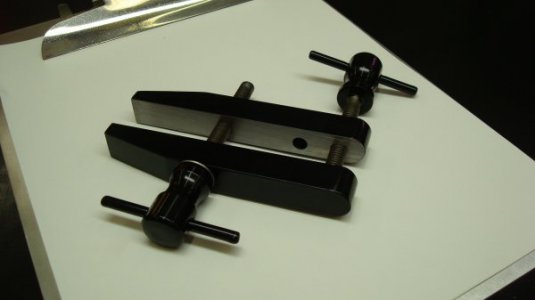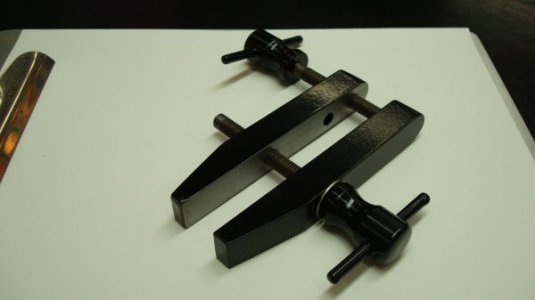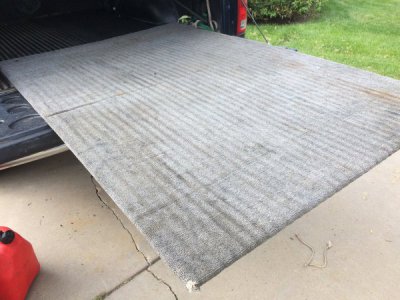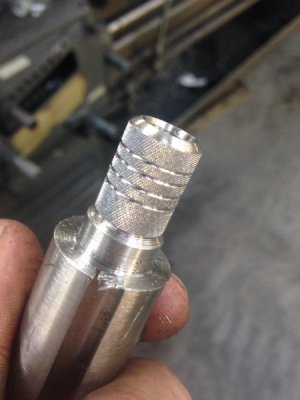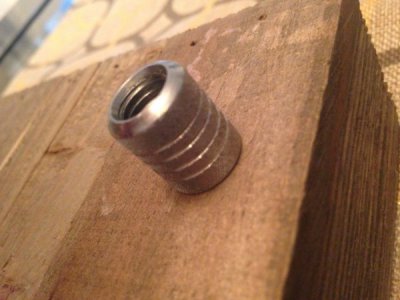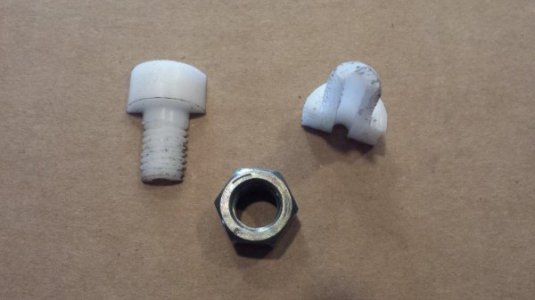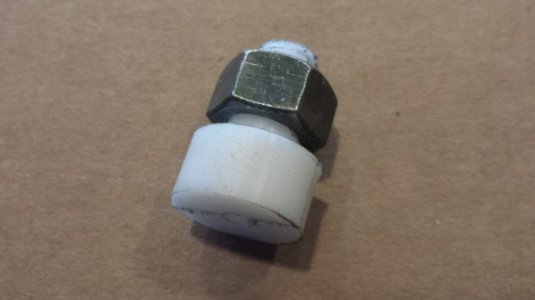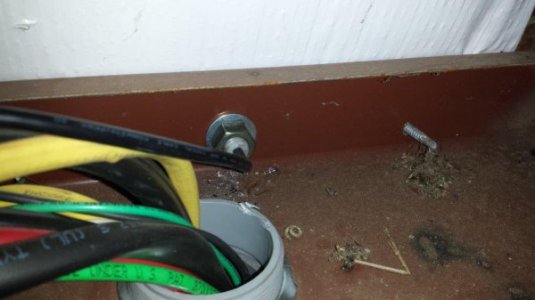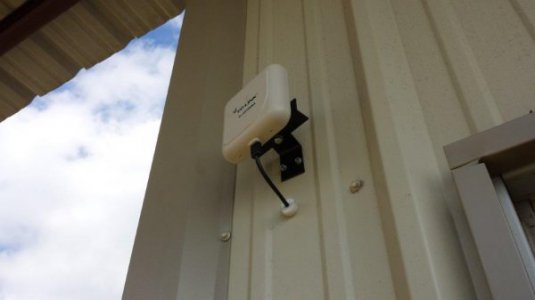- Joined
- Apr 21, 2015
- Messages
- 894
I've lost track of how much steel tubing I've used for this bench, but it's coming along nicely. Again, this is 12' long, to hold the 10" lathe, round column mill, and surface grinder. Puts them all on the same base so there is no wasted space as always happens with individual machine stands. Going to fill it up with drawers and a surprise or two. Nearly all of the regular supports are in, I just need to use the scraps to make diagonal torsion supports, grind the galvanizing off of the coupler nuts I'm using for leveling feet and then weld them on (10 of them, spaced every 3', front and back). Oh, and paint it. And add a (smooth, nice) plywood top. And the drawer glides. And the drawers.
Okay, there's still a lot of work to do, but it's coming along rather well considering how cramped this tiny garage is even without this thing in here. The only way to get to the joints to weld them is usually to climb inside, which is a serious pain, especially with the welding helmet. But it's going to make all the difference in the world when it's done. I'm going to have so much more room, and I will not need to rearrange the shop every time I switch operations.
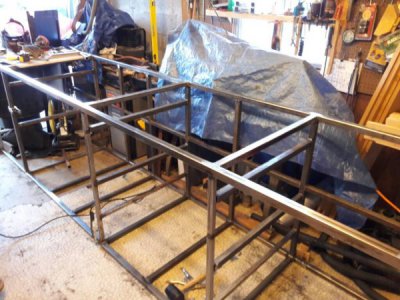
Still laying on its back here. The spacing of the vertical supports (horizontal in the current orientation) is based on the spacing of the mounting holes in the drawer glides.
Looking down the face/top of it to check for flatness, I couldn't be more pleased. It is delightfully flat and square. And rigid. And heavy. I'm very excited to get it finished as soon as I can so I can finally get working in the shop instead of just on the shop for the first time in months.
Okay, there's still a lot of work to do, but it's coming along rather well considering how cramped this tiny garage is even without this thing in here. The only way to get to the joints to weld them is usually to climb inside, which is a serious pain, especially with the welding helmet. But it's going to make all the difference in the world when it's done. I'm going to have so much more room, and I will not need to rearrange the shop every time I switch operations.

Still laying on its back here. The spacing of the vertical supports (horizontal in the current orientation) is based on the spacing of the mounting holes in the drawer glides.
Looking down the face/top of it to check for flatness, I couldn't be more pleased. It is delightfully flat and square. And rigid. And heavy. I'm very excited to get it finished as soon as I can so I can finally get working in the shop instead of just on the shop for the first time in months.

